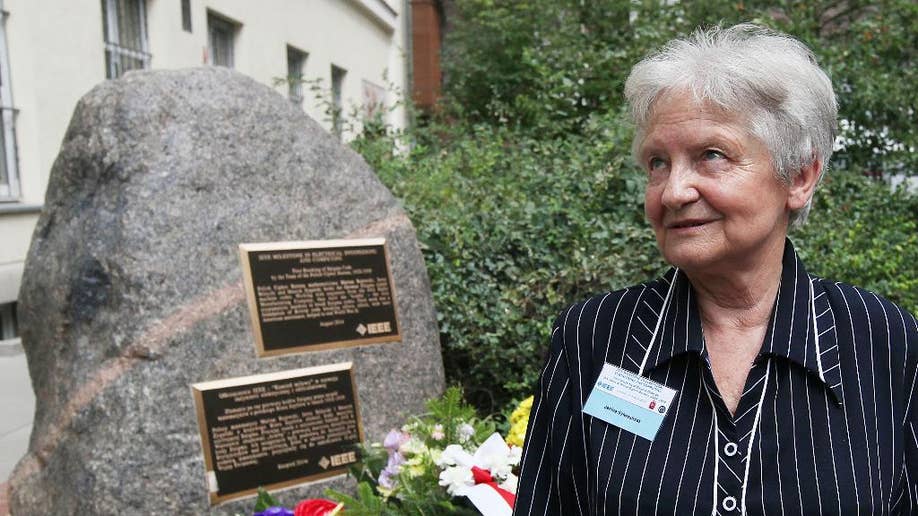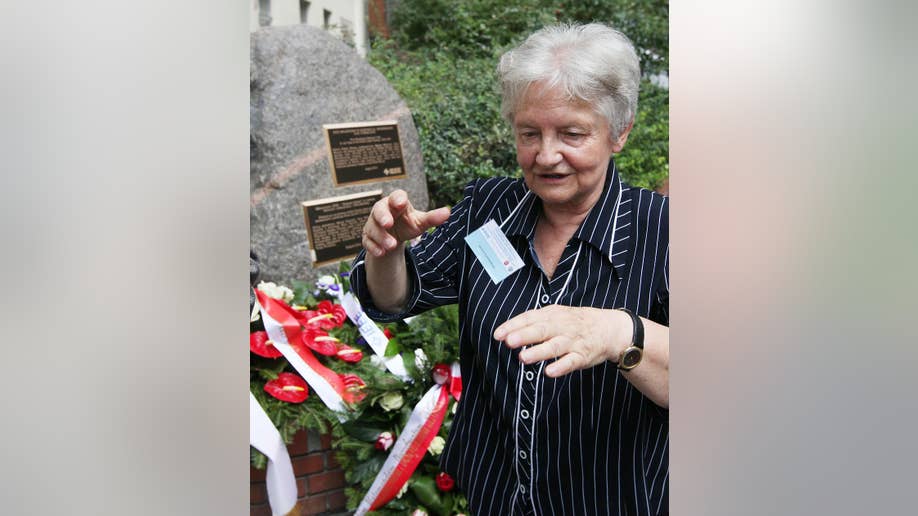World organization of engineers honors Poles who broke the Nazi Enigma codes
{{#rendered}} {{/rendered}}A global organization of engineers on Tuesday honored the three Poles who broke the German Enigma cipher codes and helped end World War II.
J. Roberto de Marca, head of the Institute of Electrical and Electronics Engineers, unveiled a stone memorial with two plaques in honor of mathematicians Marian Rejewski, Jerzy Rozycki and Henryk Zygalski — who first cracked Enigma-coded messages in 1932. During the war, they worked with British code breakers at Bletchley Park in England on codes that changed daily.
The plaques, one in English and the other in Polish, were funded by the engineers' group. The memorial is located in front of the Institute of Mathematics in downtown Warsaw.
{{#rendered}} {{/rendered}}"Polish Cypher Bureau mathematicians ... broke the German Enigma cypher machine code," the plaques say. "They built the 'bomba' (Polish for 'bomb'), the first cryptanalytic machine to break Enigma codes. The work was a foundation of British code breaking efforts which, with later American assistance, helped to end World War II."
Rejewski's daughter Janina Sylwestrzak, who was very moved by Tuesday's ceremony, told The Associated Press that during communist times her father worked as an office clerk and didn't discuss with anyone his role in cracking the Enigma codes. Only after a French cryptologist revealed the role of the three Poles did he tell his story to his family and started writing for history institutes about his work.
The engineers' group, known as the IEEE, honored the late mathematicians with its "Milestone" distinction given to scientists who change the world by advancing science and technology.
{{#rendered}} {{/rendered}}Rejewski died in 1980 in Warsaw, Zygalski died in 1978 in Britain and Rozycki died in 1942 in a shipwreck on the Mediterranean Sea.


